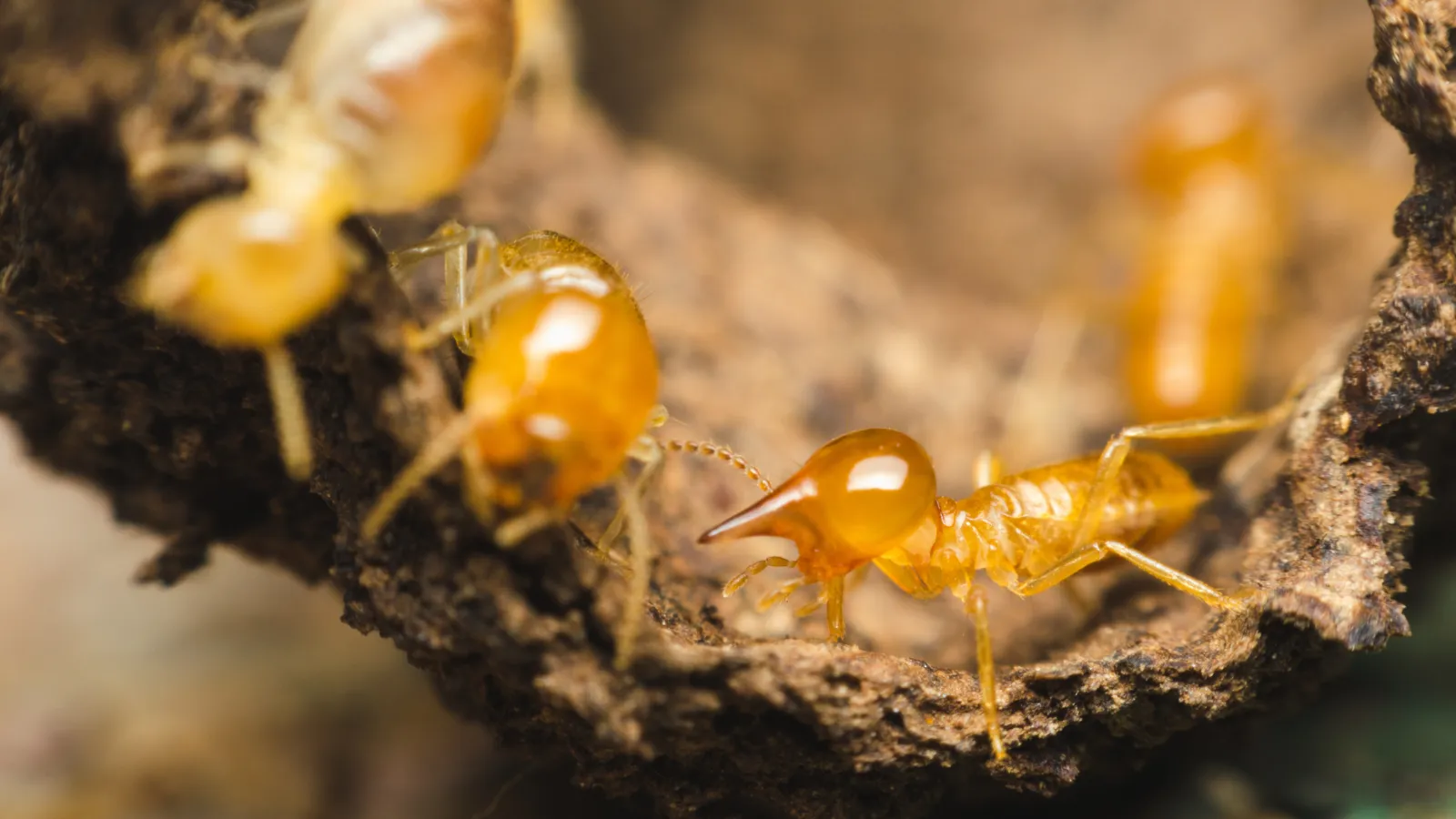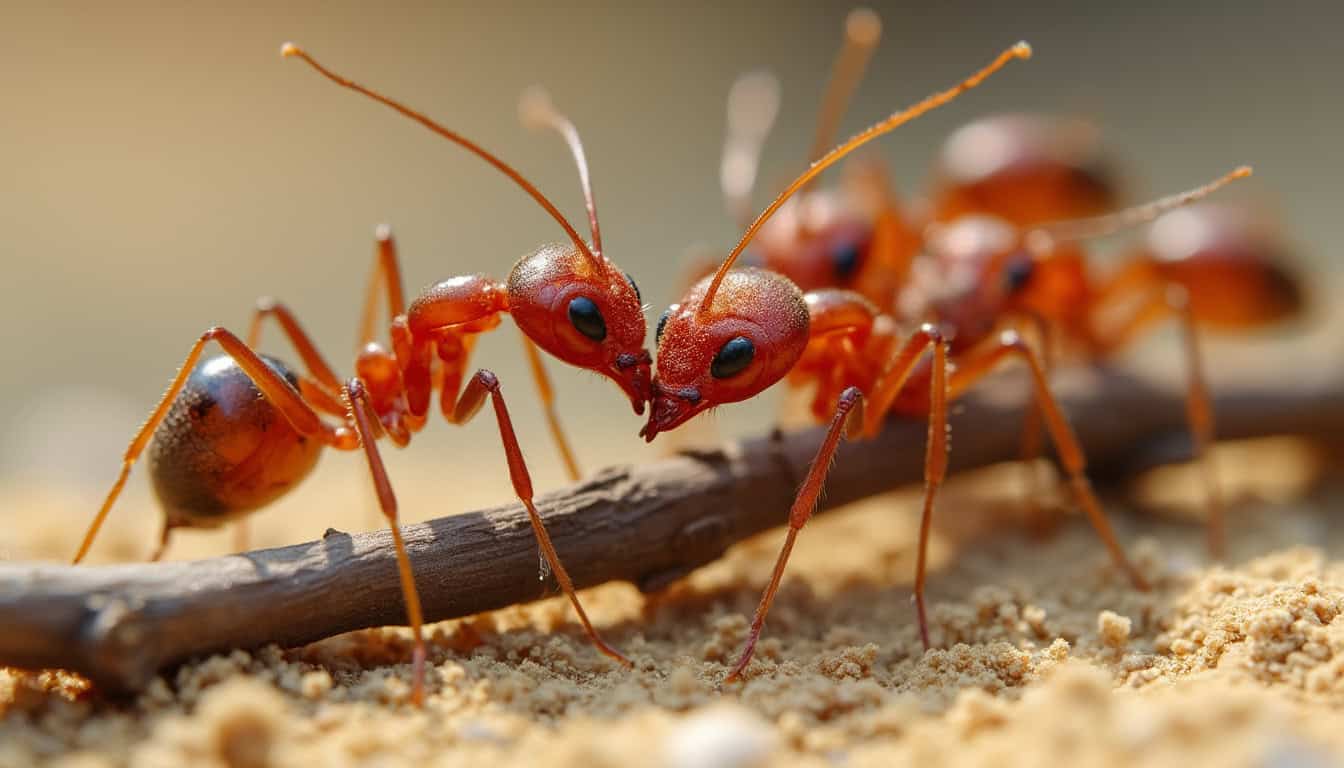Why Choose Our Termite Control Services: Expert Solutions for Effective Protection
Why Choose Our Termite Control Services: Expert Solutions for Effective Protection
Blog Article
Ecological Influence of Insect Control: Balancing Performance With Sustainability
The ecological impact of insect control is a crucial issue that requires a delicate balance between accomplishing effectiveness in ensuring and handling insects sustainability of our ecological communities. From the usage of harmful chemicals that seep into our soil and water to the unplanned effects on non-target varieties, the effects of standard parasite control techniques are far-reaching.
Hazardous Chemicals in Insect Control
The usage of hazardous chemicals in insect control poses significant environmental and health threats that necessitate cautious factor to consider and reduction methods. Herbicides, pesticides, and chemicals are generally utilized to remove insects, however their widespread application can lead to unintended effects. These chemicals can pollute soil, water sources, and the air, influencing not only the targeted pests yet likewise valuable pests, wildlife, and human beings.

To deal with these dangers, integrated pest management (IPM) strategies are being advertised as a much more lasting option. IPM entails a mix of methods such as organic control, habitat manipulation, and the targeted use chemicals as a last option (ant control cherryville nc). By taking on an alternative method to pest control, we can minimize the environmental and health influences related to damaging chemicals while effectively taking care of pest populations
Impact on Non-Target Variety
Thinking about the unintentional effects of insect control methods, the influence on non-target types is a crucial facet that requires detailed examination. While pest control actions aim to target certain parasites, various other microorganisms in the ecological community may be inadvertently impacted. Non-target species, including beneficial bugs, birds, creatures, and even plants, can endure straight or indirect damage from pesticide applications or biological control approaches.
Chemicals can have sub-lethal or lethal effects on non-target types. Pesticides designed to battle a particular insect parasite might hurt pollinators like bees or natural predators such as ladybugs. In addition, chemical deposits can accumulate in the environment, influencing non-target organisms in time. Organic control representatives, if not species-specific, can posture risks to unexpected targets, interfering with the ecological equilibrium.
To reduce the effect on non-target varieties, incorporated pest management (IPM) strategies that emphasize a holistic approach to pest control are recommended. These methods prioritize making use of eco-friendly methods, lessening harm to helpful microorganisms while successfully handling pest populations. Performing detailed threat evaluations and monitoring the end results of bug control efforts are essential actions in guarding non-target types and promoting total environment health.
Dirt and Water Contamination
Unintended environmental consequences of bug control methods extend beyond influencing non-target varieties, with significant effects for soil and water contamination - termite control services. Pesticides, herbicides, and chemical fertilizers utilized in bug control can seep into the dirt and contaminate groundwater, presenting a hazard to both aquatic and terrestrial environments.
Water contamination is one more crucial issue linked with parasite control practices. To minimize dirt and water contamination from bug control activities, integrated parasite administration strategies that prioritize sustainability and decrease chemical inputs are critical.
Air Air Pollution From Pesticide Use
Exposure to airborne chemicals during farming applications presents a considerable concern for air pollution control actions. They can volatilize right into the air and type volatile natural compounds (VOCs) and various other airborne toxins when click for info chemicals are sprayed onto plants - termite control services. These chemicals can add to the formation of ground-level ozone, a significant component of smoke that can have destructive results on human health, plant productivity, and overall air quality. In addition, pesticide drift, where chemicals are carried by the wind to unplanned locations, can bring about the contamination of neighboring ecological communities and water bodies.

Strategies for Sustainable Insect Control
In the realm of farming methods, executing lasting parasite control strategies is critical for maintaining environmental balance and securing plant yields. Sustainable pest control emphasizes making use of eco-friendly methods to take care of pest populations efficiently while reducing harm to non-target organisms and environments. Integrated Bug Monitoring (IPM) is an extensively taken on technique that integrates biological, cultural, physical, and chemical control methods to achieve long-lasting bug administration services.
Plant rotation and diversity are also reliable techniques to interfere with pest life cycles and create much less favorable problems for bugs to thrive. Inevitably, by integrating these lasting pest control methods, farmers can attain a balance in between pest administration performance and environmental stewardship.
Final Thought
Finally, the environmental influence of bug control techniques need to be meticulously considered to balance performance with sustainability. Dangerous chemicals made use of in insect control can cause dirt and water contamination, air contamination, and harm non-target types - ant control. It is critical to implement sustainable insect control approaches to minimize these negative effects on the environment and promote a much healthier community for future generations
By embracing an alternative strategy to pest control, we can decrease the ecological and health effects connected with dangerous chemicals while properly taking care of pest populations.

To reduce the air contamination caused by pesticide use, it is essential to take on integrated bug management methods that focus on the use of non-chemical bug control methods, such as plant turning, natural predators, and immune plant varieties. Sustainable bug control stresses the use of eco pleasant methods to handle parasite populaces efficiently while lessening injury to non-target microorganisms and communities. Integrated Bug Administration (IPM) is a commonly taken on approach that combines biological, cultural, physical, and chemical control approaches to achieve long-lasting bug monitoring remedies.
Report this page